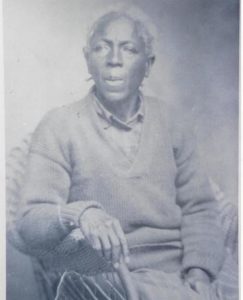
Matilda McCrear
*The birth of Matilda McCrear in c1857 is affirmed on this date. She was a Black African (Yoruba) woman who was enslaved and transported to America.
Matilda McCrear was captured by slave traders in West Africa when she was two years old and taken to the USA on the Clotilda, the last ship to transport enslaved Africans to America, when it docked in Mobile, Alabama, in July 1860. McCrear was transported with her mother, Gracie, her three elder sisters, and the man who would go on to be her stepfather. Her family was split up immediately when two of her brothers were left in West Africa. She would never know what happened to them.
On arrival in Alabama, she was bought by Memorable Walker Creagh along with her ten-year-old sister, Sallie, and her mother, Gracie. Gracie was forcibly paired with Guy, another Clotilda survivor, while her two oldest daughters were bought by another slave owner and never seen again. She never married and was probably not a citizen of Africatown, Alabama. Instead, she had a decades-long common-law marriage with a white-American (German), with whom she had 14 children. Even though she left West Africa as a toddler, throughout her life, she wore her hair in a traditional Yoruba style, presumably taught to her by her mother. She also changed her surname from Creagh, her former enslaver’s spelling, to McCrear.
When she was in her 70s, she was interviewed by the Selma Times-Journal.” Matilda was interviewed by journalist Octavia Wynn of the Selma Times-Journal newspaper because she had made the 15-mile journey from her home to the Dallas County Courthouse in Selma to claim compensation for herself and Redoshi Smith as survivors of the Clotilda. Matilda McCrear, the last survivor of the Middle Passage to America, died in Selma, Alabama, in January 1940, aged 83.